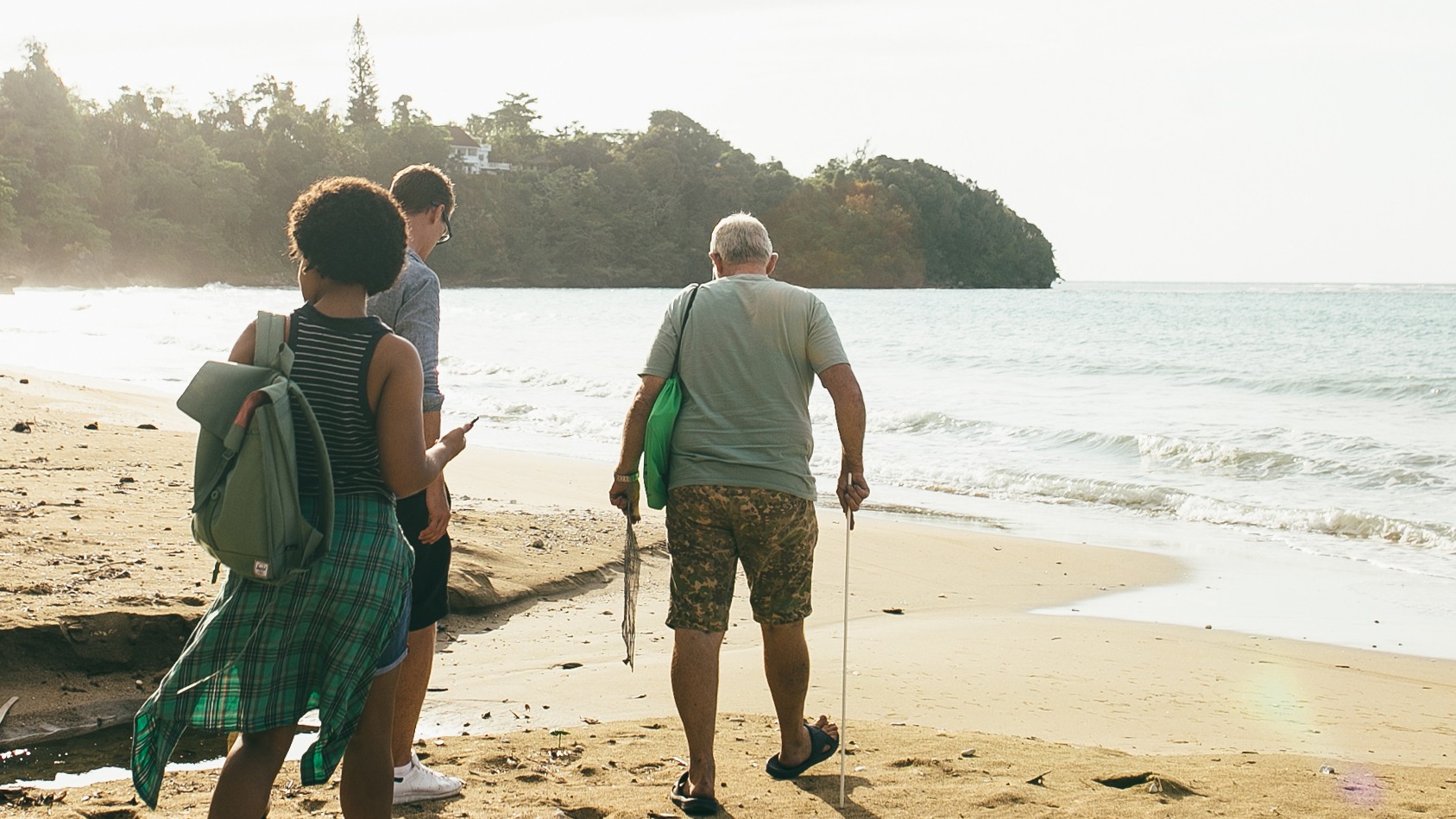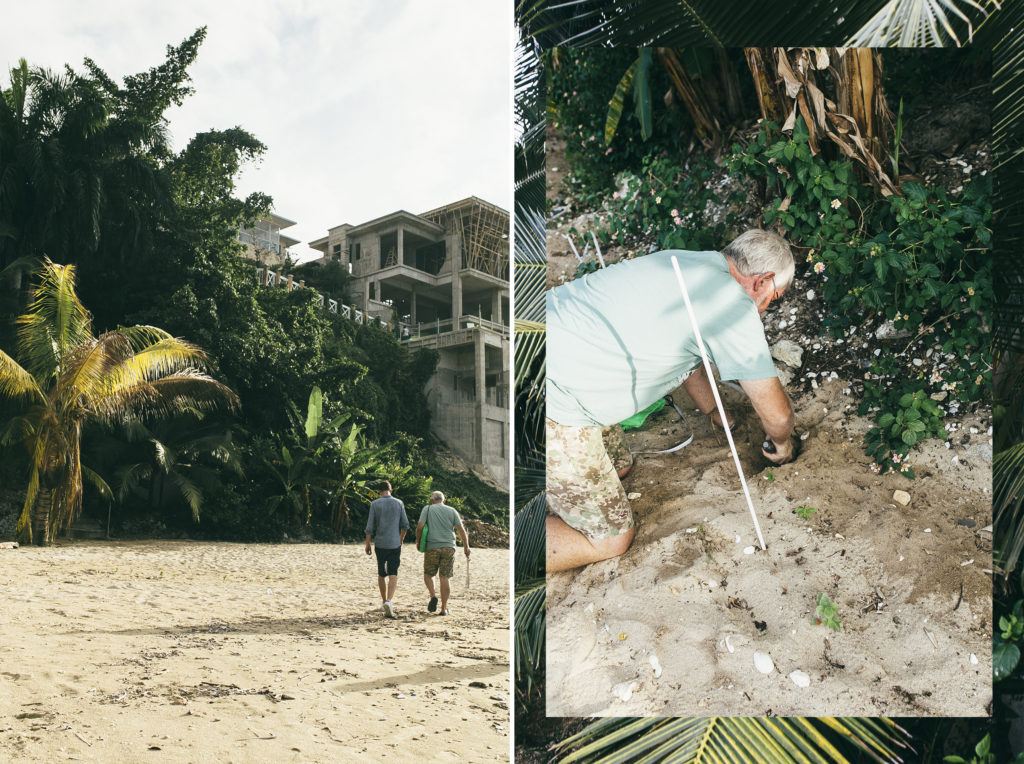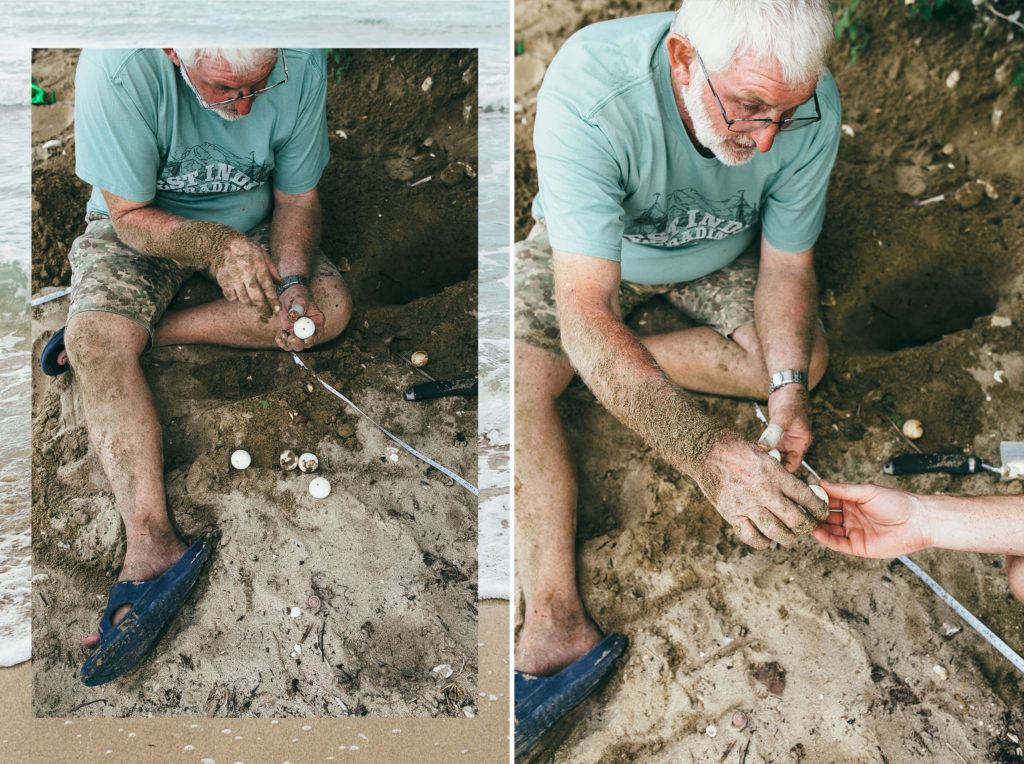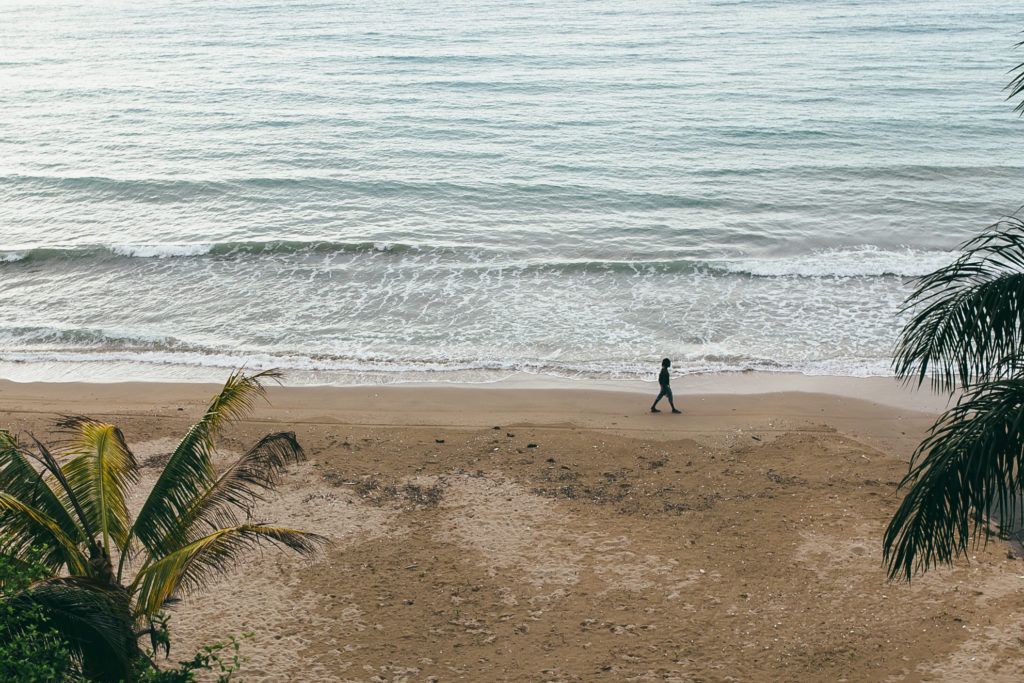Meet the Man Saving Jamaica’s Sea Turtles

Mel Tennant came to Jamaica in 2003, purchasing a home overlooking Oracabessa’s Gibraltar Beach, and expecting to enjoy his retirement in tropical quiet. The following year, Tennant observed turtle tracks on Gibraltar Beach for the first time. Further investigation led him to find that most of the adult turtles were either killed and their nests dug up. The destruction of a critically endangered species would soon put an end to his tropical retirement, and send Tennant into a newfound mission to protect the sea turtles.
Each year, Tennant soon discovered, sea turtles came ashore in front of his house to lay their nests of between 100 and 240 eggs. A key player in the Caribbean’s marine ecosystem, turtles help to maintain seagrass beds, balance coral reefs and help stabilize beaches where they nest their eggs. Unfortunately, a persistent myth that eating turtle eggs boosts sexual performance means that illegal poaching remains common throughout Jamaica.
Tennant has spent the last 11 years confronting poachers head-on to ensure the safety of sea turtles on the beach he calls home, too. During nesting season (May to August), he and his team keep a vigilant watch on the beach. Their night patrols have helped increase nest survival rates from 37 percent in 2005 to an astounding 80 percent today. He’s given them “a fighting chance to make it to the water where they are free,” he says on a recent visit to his home at Gibraltar Beach.
Once the sea turtles hatch, Tennant and his team help guide them from their nests into the water—a process that can take an hour and a half for each hatching, but that is vital to turtles, who use magnetism to return to their place of birth to lay their own nests after a few “lost years” traveling in the ocean. Tennant tags each returning adult turtle, tracking the numbers each year in massive binder. Next year, Tennant plans to build an incubator to further protect the eggs and boost nest survival to 85 percent. Also on the horizon are protective shade huts for nests that are laid in endangered parts of Gibraltar Beach.
Tennant is not in the fight alone. He works closely with nearby Oracabessa Fish Sanctuary, which is also working to protect the island’s marine life. And in 2012,Chris Blackwell heard about his work and visited the beach. Watching him assist hundreds of tiny sea turtles skuttle in unison into the ocean, Blackwell exclaimed “I want all of our guests to see this!”. Since the partnership began, Tennant says that thousands of GoldenEye guests have visited Gibraltar Beach. Among them? Chef Mario Batali, who included the visit on BBC Travel’s 50 Reasons to Love the World.
In the last year alone, Tennant has released more than 25,000 baby turtles. Little wonder then, that he’s earned the nickname, Jamaica’s Turtle Man.
Below, see hundreds of baby turtles race to the sea, as filmed by Mario Batali.



